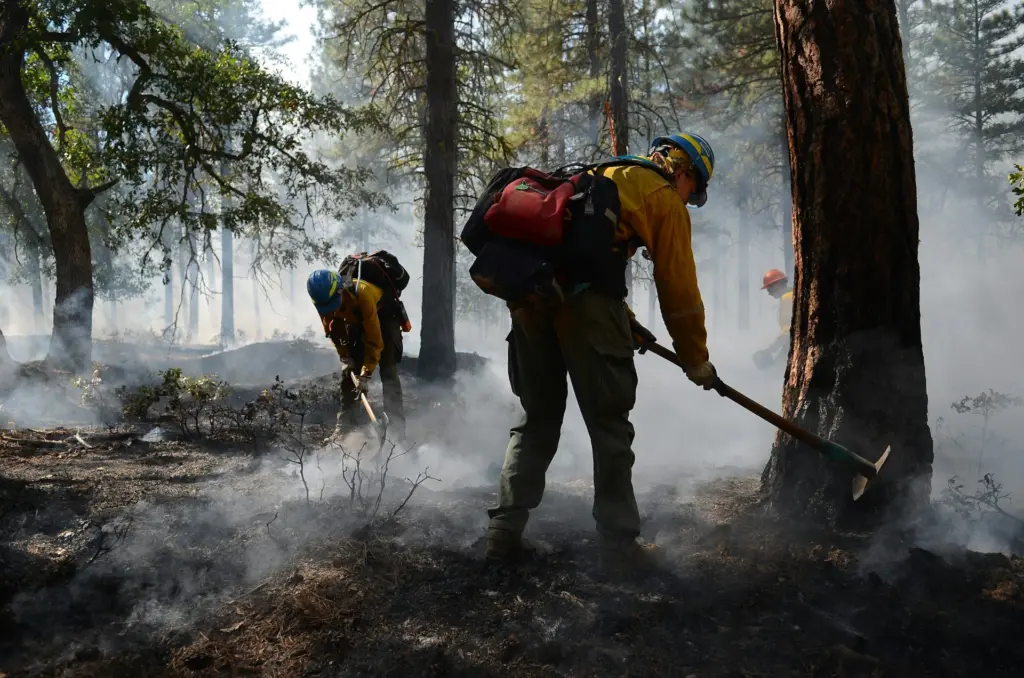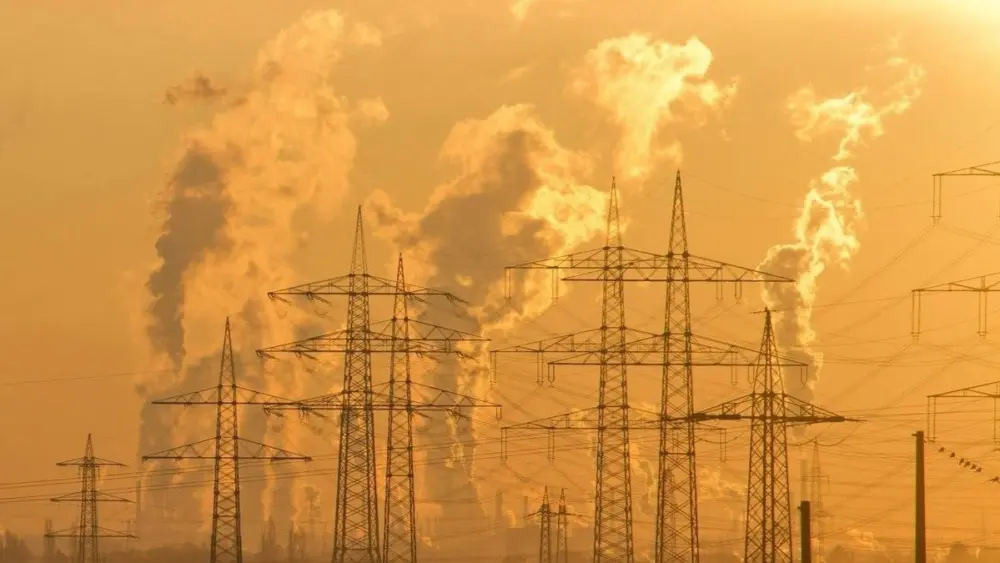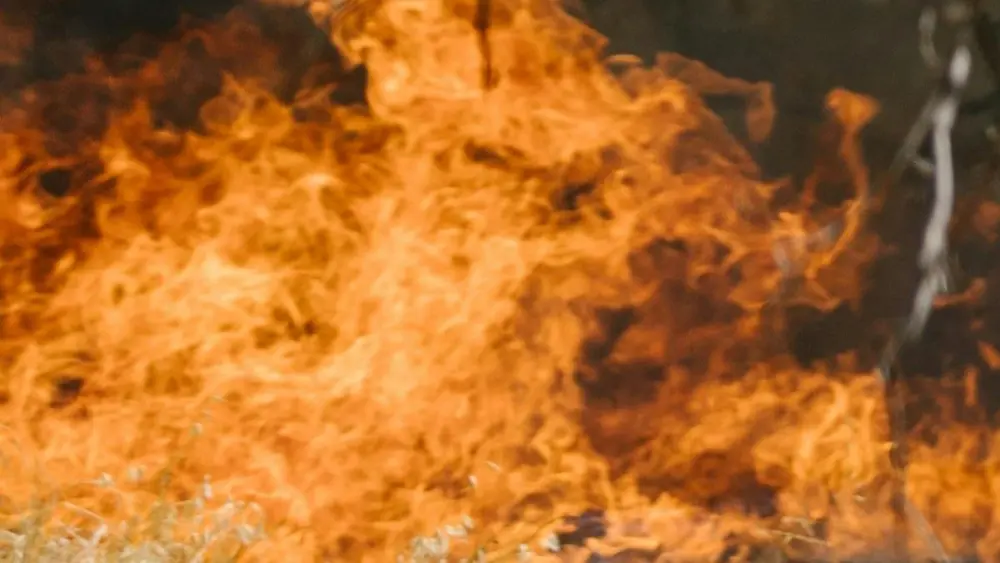OLYMPIA, WA – The reversal of a decades-old U.S. Forest Service policy means that federal wildland firefighters can now mask up if they want to — something Washington’s state wildland firefighters have been able to do for the past five years.
Since 2020, the state Department of Natural Resources has made N95 respirators available upon request to wildland firefighters not engaged in directly attacking fires, a department spokesperson confirmed.
This lines up with the new guidance issued for federal wildland firefighters last month, allowing those not working directly on the fireline to wear an N95 mask if they want to.
Even with the state policy and new federal mask guidance, advocates for firefighters say there are still significant gaps in protecting firefighters from smoke and other toxins they encounter.
Federal policy previously prevented wildland firefighters from wearing face coverings other than bandanas under the reasoning that masks could interfere with their work or cause them to overheat.
N95 masks can provide some protection against exposure to smoke, which decades of research links to cancer, lung disease and heart problems.
Allowing wildland firefighters to use N95s is a step in the right direction, said Bobbie Scopa, a retired federal wildland firefighter and member of the wildland firefighter advocacy group Grassroots Wildland Firefighters.
“But N95s are not the answer to our problems,” Scopa said.
A well-fitted mask requires a clean seal to be effective, which makes them difficult for men with facial hair to use.
The masks typically aren’t fitted well enough in the first place to maintain that seal and stay in place through the intense manual labor firefighters regularly do.
“It’s hot, and it’s sweaty, and it’s moving all around your face,” Scopa said.
The masks also muffle voices, which can make verbal communication a challenge.
Because of those difficulties, and because the masks are not mandatory for wildland firefighters to use, Scopa said that wildland firefighters are unlikely to use them regularly.
Additionally, while N95s protect against smoke and particles in the air, they do not protect against gases, vapors, oils and other chemicals wildland firefighters are regularly exposed to.
There are no respirators currently available for wildland firefighters that do filter all the harmful substances they are exposed to on the job.
Mandatory protection gear for wildland firefighters has not changed much since 1977, even though their exposure to smoke and other dangerous fire-related substances has increased dramatically in that same timeframe.
Some companies have dabbled in making full-face respirators for wildland firefighters over the years, but the discomfort of wearing them in the heat and the inability to communicate through the filter made them impractical.
“This is something that, from our perspective, needs more research and some better understanding as far as best practices and recommendations,” said KC Whitehouse, a battalion chief with a county fire department and a representative of the Washington State Council of Firefighters, a coalition of firefighter unions that advocates for professional firefighters, including wildland firefighters, across Washington.
Without adequate respiratory protection for wildland firefighters, the Washington State Council of Firefighters and Grassroots Wildland Firefighters advocate for reducing firefighters’ exposure to smoke and harmful substances when possible.
In an effort to reduce exposure, incident managers for large fires have begun bringing in air resource advisors to monitor air quality, according to Whitehouse.
He recalled being part of the response to the Sourdough Fire in the North Cascades in 2023, and how the data collected by the air resource advisors contributed to the decision to pull firefighters off the line.
“The air quality was so poor that we couldn’t justify the risk-benefit of having firefighters up there,” Whitehouse said.
The Department of Natural Resources will continue evaluating new ways to protect the state’s wildland firefighters, an agency spokesman said.
Washington State Standard is part of States Newsroom, a nonprofit news network supported by grants and a coalition of donors as a 501c(3) public charity. Washington State Standard maintains editorial independence. Contact Editor Bill Lucia for questions: info@washingtonstatestandard.com.





